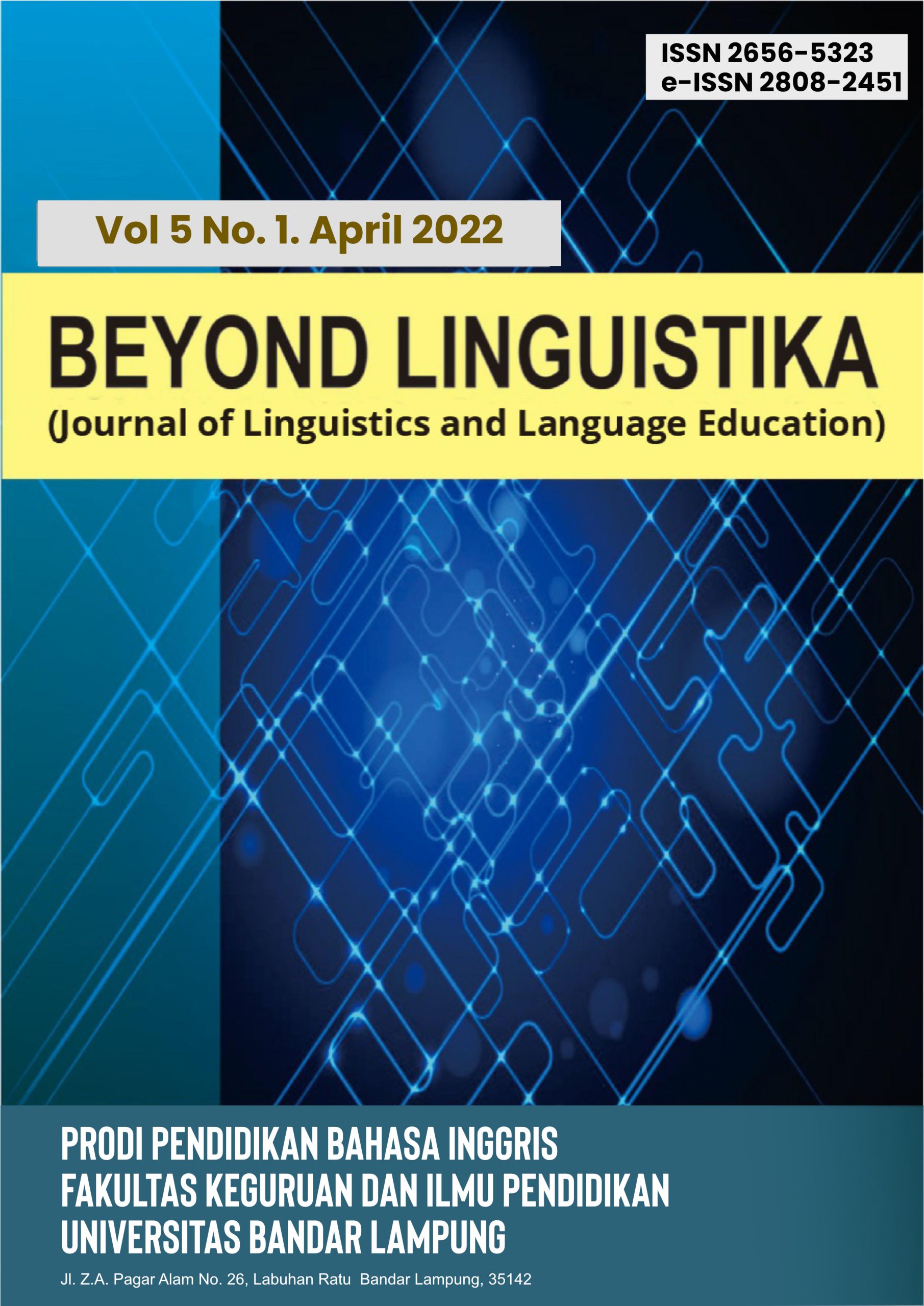ATTEMPTS TO RETAIN THE IDENTITIES IN THE ENGLISH TRANSLATION OF AHMAD TOHARI’S “SENYUM KARYAMIN”
Abstract
In its function as a bridge to help people of different languages understand each other, translation seems to
encounter more and more challenges. Although it looks like an innocent job, translation is an overly
complex undertaking, and sometimes dangerous. It is fully charged with interest in any step of its process.
Identity, especially nowadays, has come at center stage in the discussion about culture. People with different
identities will get annoyed when they receive treatment, or sometimes harassment, from the majority. A
translation that should have a noble objective, i.e. bridging the gap between people, now has its obstacle.
Identity loss in translation, however, inevitably happens. Some identity items of source text can be
expressed aptly into the target text, and some others may lose during the process of translation. Such a
phenomenon is rather common in translation, particularly when the translators are unable to apply the right
strategy to minimize such loss. This paper tries to look at cultural loss in the English translation of Tohari's
short story "Senyum Karyamin" which was translated into "Karyamin's Smile". It is found that the
translator's inability to render cultural contents into English indicates the tendency to take readily available
terms, which eventually oversimplifies the translation and loses the cultural identity inherent in the source
text.
Keywords
Full Text:
PDFReferences
Badan Pengembangan dan Pembinaan
Bahasa. (2021, April). KBBI
Daring. Diakses dari KBBI
Daring:
https://kbbi.kemdikbud.go.id/
Baker, M. (1992). In Other Words.
London: Routledge.
Bell, R. T. (1991). Translation and
Translating. London: Longman.
Cronin, M. (2006). Translation and
Identity. London: Routledge.
George, M. W. (2008). The Elements of
Library Research. Princeton, NJ:
Princeton University Press.
Merriam-Webster.com.
(2021,
September 21). Diakses dari
Merriam-Webster.com:
https://www.merriamwebster.com/
Naisbitt,
J.
(1982).
Megatrends:
ten
new
directions
transforming
our
lives.
New
York:
Warner
Books.
Newmark, P. (1988). A Textbook of
Translation. New York: PrenticeHall.
Nida, E., &
Taber, P.
(1971).
Translation
Theories
and Practices. Leiden:
EJ Brill.
Niranjana, T. (1992). Siting Translation:
History, Post-Structuralism and
the Colonial Context. Berkeley:
University of California Press.
Nord, C. (1997). Translation as a
Purposeful Activity: Functionalist
Approaches
Explained.
Manchester: St. Jerome Press.
PACTE (2003). Building a Translation
Competence Model. In F. Alves,
Triangulating
Translation:
Perspectives in process-oriented
research (pp. 43-66). Amsterdam:
John Benjamins.
Tohari, A. (1989). Senyum Karyamin.
Jakarta: Gramedia Pustaka
Utama.
Tohari, A., & Kesauly (Pen.), R. (2015).
Karyamin's Smile. Jakarta:
Gramedia Pustaka Utama.
Urban Dictionary. (2021, September 19).
Diakses dari Urban Dictionary:
https://www.urbandictionary.com
/
DOI: http://dx.doi.org/10.36448/bl.v3i1.2433
Refbacks
- There are currently no refbacks.















